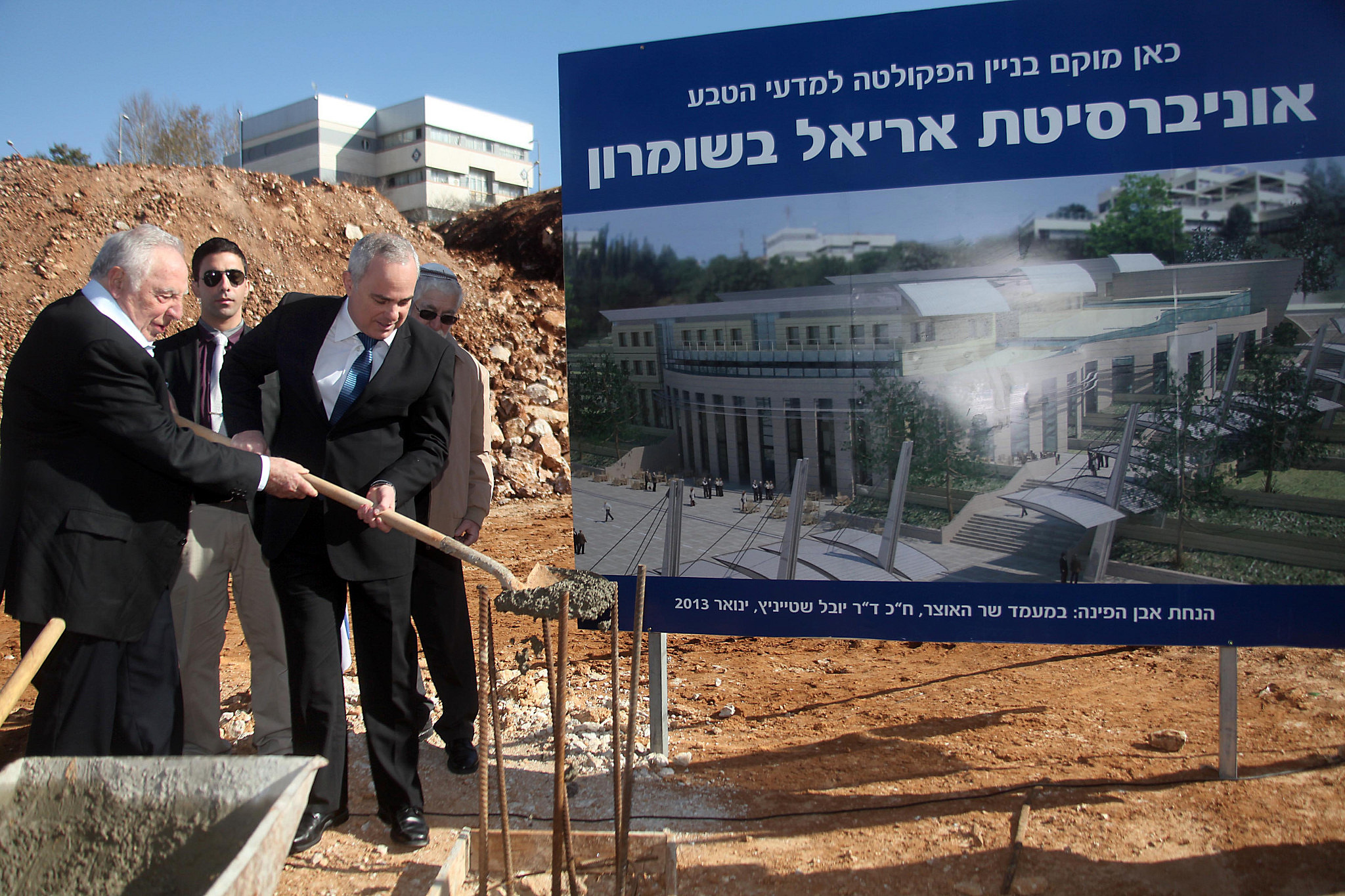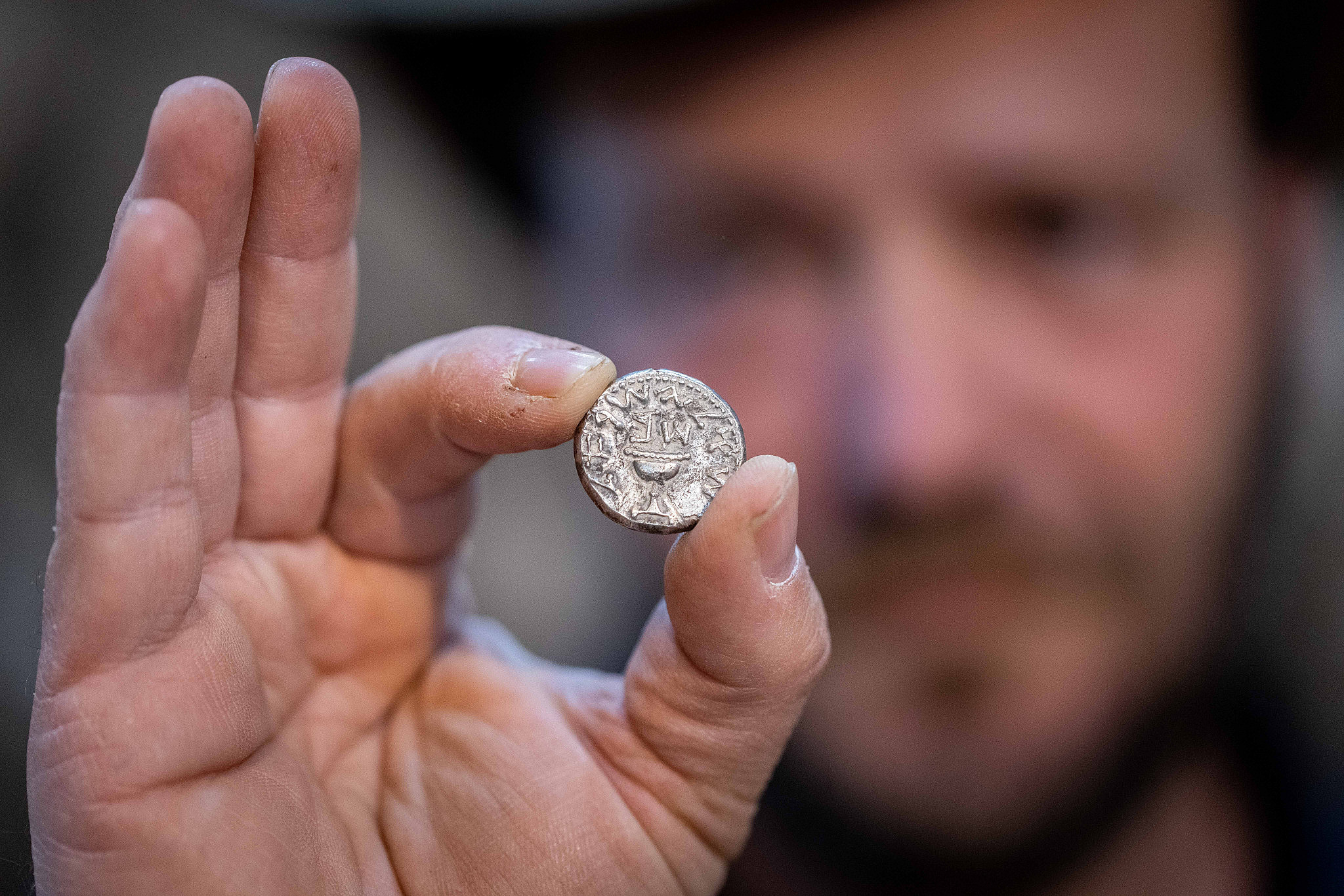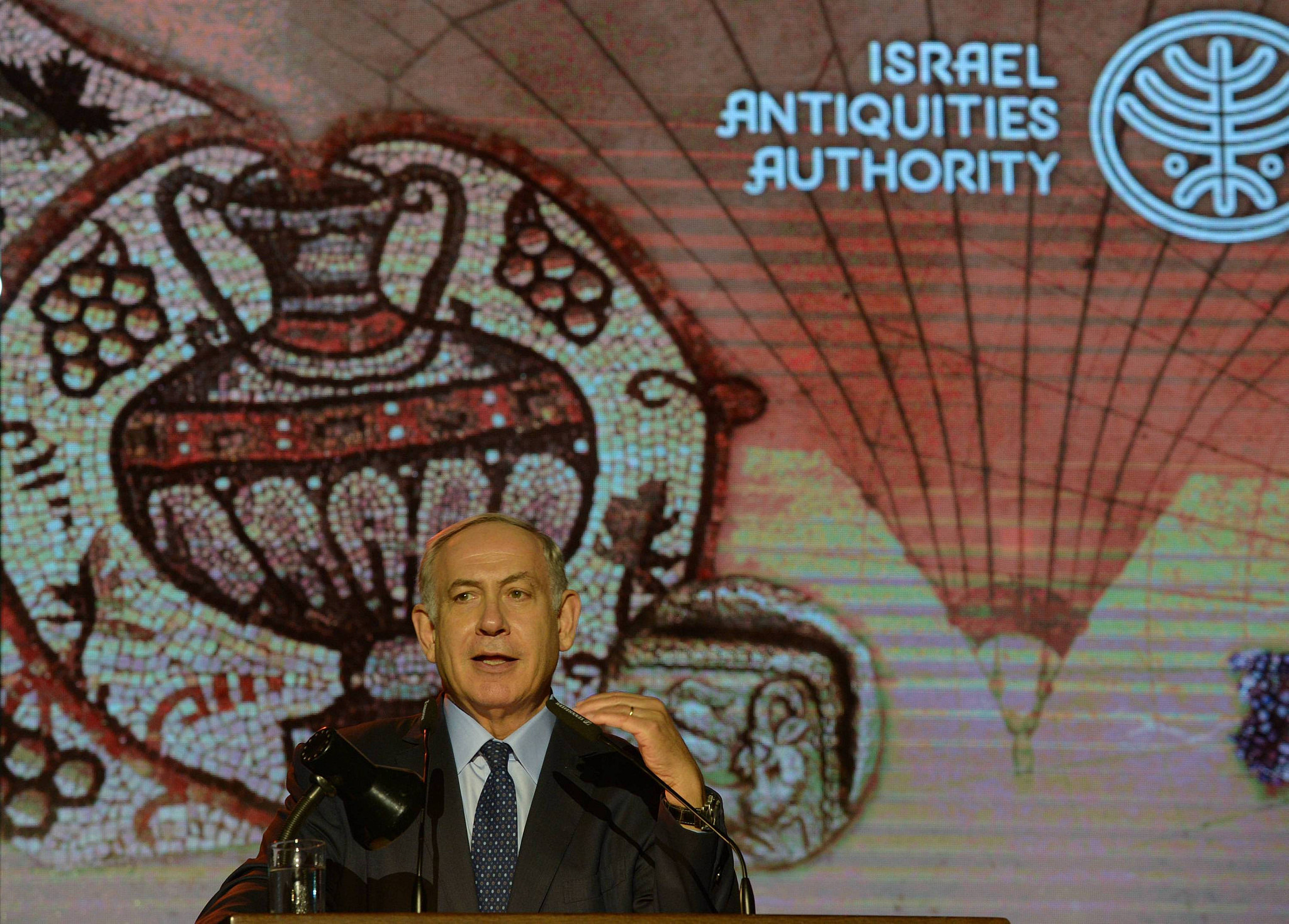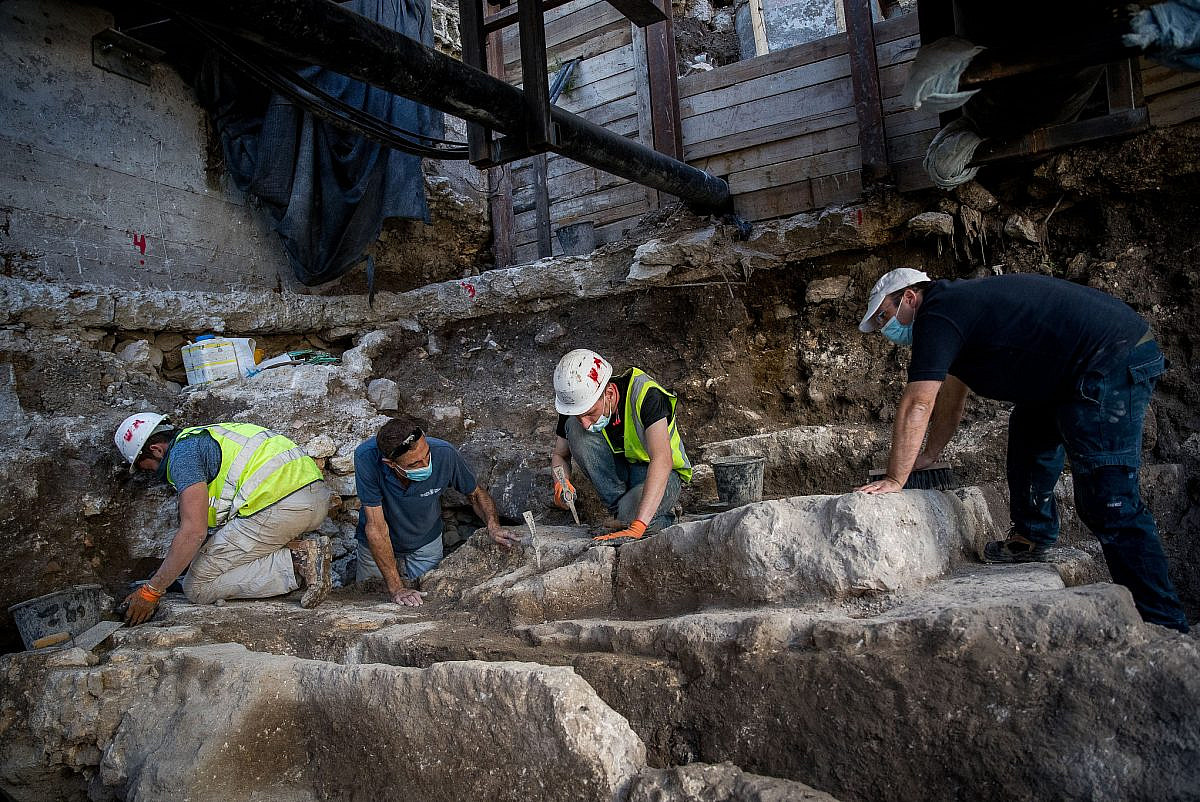An Israeli archeologist based at Ariel University in the occupied West Bank had his lecture at an international conference canceled last week, following pressure from fellow researchers. A lecture by a doctoral student, also based at Ariel University, went ahead as planned. Unlike other conference participants, whose institutional affiliations were listed alongside their names in the program, the pair — Prof. David Ben Shlomo and Yair Elmakias, both of the Department of Land of Israel Studies and Archaeology — did not have their attachment to Ariel University cited.
The International Congress on the Archaeology of the Ancient Near East (ICAANE) — held every two years and considered one of the two most prestigious gatherings on the subject — was held in Copenhagen from May 22 to 26. This year’s conference, its 13th gathering, featured around 20 participants from Israel, coming from the Hebrew University of Jerusalem, University of Haifa, Tel Aviv University, and Ben-Gurion University of the Negev.
The fact that two researchers from a settlement university were invited is noteworthy, both because the institution is located in occupied territory, and because excavating in an occupied area is considered a violation under international law.
One of the researchers who opposed the participation of Ben Shlomo and Elmakias was Dr. Brian Boyd, co-director of the Center for Palestine Studies at Columbia University in New York. In a Facebook post, Boyd cited the 2013 decision of the World Archaeological Congress, according to which “[i]t is unethical for Professional Archaeologists and academic institutions to conduct professional archaeological work and excavations in occupied areas possessed by force.”
Noting that “Israel’s settlement enterprise constitutes a war crime under international law,” Boyd wrote that the conference’s omission of Ben Shlomo’s and Elmakias’ institutional affiliation in the program “seems to suggest that they are well aware of the legal situation, and that they have done so in order to avoid international criticism from the archaeological community.” He later updated that Ben Shlomo’s lecture had been canceled. Boyd declined to be interviewed for this article.

According to the original conference program, Ben Shlomo was supposed to present research on findings from the Iron Age in the southern Jordan Valley, located in the occupied West Bank. The details of his talk were removed from the conference website after the cancellation of his presentation.
Breaching Oslo and international law
Ben Shlomo confirmed the sequence of events to +972. “[The conference organizers] canceled my lecture on excavations at Khirbet ‘Aujah el-Foqa near Jericho in Area C [which is under full Israeli control],” he wrote. “At first they confirmed it, but then various people complained about it, and there’s sensitivity to the issue in Europe. Especially, I assume, because one of the conference organizers is based at the Archeology Institute in Damascus.”
Elmakias, who still spoke at the conference, was involved in a project in April 2022 that took mounds of dirt from Mount Ebal near Nablus, in which an ancient amulet with a Hebrew inscription, apparently from the 13th century BC, was discovered. This would make it the oldest Hebrew inscription ever discovered; however, other researchers have cast doubt on this claim.
The dirt was taken from a site in Area B of the West Bank, over which Israel has security control and the Palestinian Authority has administrative control. According to the Oslo Accords and international law, Israel is not allowed to issue excavation licenses at the site, and cannot extract findings without such a license.
As reported by Nir Hasson in Haaretz, in 2019, a group of American and Israeli researchers arrived at the Mount Ebal site, working together with Associates for Biblical Research and under the auspices of the Samaria Regional Council, a settlement body. With the help of volunteers, they removed three large mounds of dirt from the site, which had been left over from excavations conducted there in the 1980s. They drove the dirt to the academic center that Elmakias directs, before sifting it and discovering the amulet.
Responding to +972, Elmakias claimed that his participation in the Copenhagen story is “not a story.”

“Ultimately, the organizers accepted all our requests, including [that we] appear under the name of Ariel University and that we present research conducted in Samaria and the Jordan Valley.” Elmakias did not explain who requested that his institutional affiliation be omitted from the program, and whether he received a request from the organizers following the protest against his and Ben Shlomo’s inclusion.
‘A serious erosion’
For their part, the ICAANE organizers stated to +972 that they “do not discuss individual situations in the public,” but that the congress “respects UNESCO conventions and if it is discovered that a presentation is a violation of conventions it will be rejected for presentation or publication. That can [be] before or after the congress.”
The organizers further stated that they do not invite the researchers to the conference, but rather “Scholars submit an abstract and a committee decide[s] if it falls within the themes of the congress.” Regarding the omission of Ariel University in the program, they said: “If some scholars do not have an affiliation it is most likely a mistake. Scholars are normally well known by their name alone.”
According to a report published by the Israeli rights groups Emek Shaveh and Yesh Din in 2017, “From the point of view of international law, archaeological sites and antiquities are cultural assets, the property of the occupied territory.” As such, the report continues, “the activities permissible for the Military Commander and those acting on his behalf are limited to actions intended to rescue or preserve antiquities. Israel, however, interprets its obligation to protect archaeological assets in a broad manner, and its archaeological activities deviate from the restrictions imposed on it as an occupying power, resulting in violations of international law.”
Today, the Israel Antiquities Authority (IAA) is technically responsible for excavations in areas inside Israel’s official borders, while excavations in the West Bank are under the responsibility of the Civil Administration’s Antiquities Division. Israel’s current government, however, wants to transfer responsibility for West Bank excavations to the IAA, which falls under the Jerusalem Affairs and Heritage Ministry now headed by Amichai Eliyahu, of the far-right Otzma Yehudit party.

Alon Arad, head of Emek Shaveh, told +972 that “if members of Israel’s archeological community want to be part of the international professional community, they need to operate according to the rules and ethics of archeology. Unfortunately, we are witnessing a serious erosion in everything related to Israel’s understanding that the West Bank is not a legitimate site for academic activities in terms of Israeli archeology.”
Arad added that there has, in recent years, been a growing number of cases in which Israel is trying to “apply sovereignty indirectly through excavations conducted by Israeli universities, or more directly via the IAA.” He warned that should Israel continue to ignore international law in this regard, “Israeli archeology will be harmed, and Israeli archeologists will become outcasts in the world community.”
A version of this article was first published in Hebrew on Local Call. Read it here.



